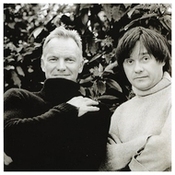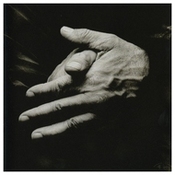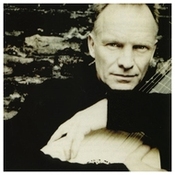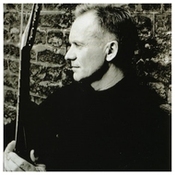
Songs From The Labyrinth
Lute Songs: Sting Sings Pieces by Renaissance Composer John Dowland in Frankfurt...
When Sting announced a reunion of their band The Police with his colleagues Stewart Copeland and Andy Summers after more than 20 years, it caused far more of a stir than the release of his latest CD. Gordon Sumner, under his stage name Sting, has been far more successful than his former collaborators over the past two decades.
Especially in his collaborations with jazz musicians, Sting has proven himself to be a quality-conscious and versatile musician, putting his stamp on the songs with his voice, which is more raspy than smooth. This distinctive voice initially proved somewhat of a hindrance to his efforts with the English Renaissance composer John Dowland. Sting undertook vocal training in early music at the Schola Cantorum in Basel in order to better meet the demands of the "forefather of the Anglo-Saxon song tradition," as the CD "Songs From The Labyrinth" demonstrates.
However, Sting lends his own personal touch to Dowland's songs. This became even more evident at his concert on Tuesday in the well-attended Jahrhunderthalle Frankfurt-Höchst. As in the studio recording, Sting enlisted the assistance of lutenist Edin Karamazov on his tour. In the core section, Sting delivers a brief biographical and musical portrait of Dowland, the composer, lute player, lyricist, and singer of the Elizabethan era. Between the songs, he repeatedly reads from Dowland's letters, in which he also recounts a visit to the Landgrave of Darmstadt and the courtly life of many European aristocratic houses.
The two musicians succeed in reproducing Dowland's compositions in an appealing way, bringing some of the Renaissance flair to life. Yet the audience is more captivated by the intimate atmosphere of the concert and the concentrated performance than by the somewhat one-dimensional music. Edin Karamazov masters the strings of his various lutes with tremendous dexterity, while Sting intones with a voice that clearly shows his breathing and modulation training.
After a fifteen-minute introduction by Karamazov, the almost hour-long High Mass for John Dowland passes in a concentrated atmosphere, partially supported by an eight-person English choir. Occasionally, one gets the impression that one is listening to a live recording of the soundtrack to a historical film from the time of Elizabeth I.
Enthusiastic cheers, however, only erupt when Sting hits like 'Fields Of Gold' and 'Message In A Bottle' are played in the encore section – albeit rearranged in Dowland's style.
(c) Echo Online by Andreas Müller
Lute Songs: Sting Sings Pieces by Renaissance Composer Dowland in Frankfurt...
When Sting, along with his colleagues Stewart Copeland and Andy Summers, announced a reunion of their band The Police after more than 20 years, it caused far more of a stir than the release of his latest CD. Gordon Sumner, under his stage name Sting, has performed under the lute for the 21st century in recent years. Lutes for the 21st Century...
On months-long, mammoth tours of recent years, the global star often seemed routine and bored. However, during his guest performance at the sold-out Jahrhunderthalle, the English multitalent, accompanied by Bosnian lute virtuoso Edin Karamazov and the eight-member accompanying choir Stile Antico, clearly enjoyed his role as an Elizabethan bard.
The fan base at the Jahrhunderthalle, largely attuned to German pop radio formats, reacted with at least a little irritation to the entirely minor-key song cycle by English composer John Dowland, a Renaissance lute player popular throughout Europe who lived from 1563 to 1626. Especially since events surrounding Sting are currently moving quite fast: After all, it was less than three weeks ago that the sensational news came over the ticker that the 55-year-old family man himself had reformed The Police.
Secretly, many in the auditorium, filled with endless rows of seats, probably wished Sting would perform as many of his classic hits as possible. However, this hope was only fulfilled to a limited extent: at the finale, when the pop idol presented the solo hit "Fields Of Gold" as well as the "Police" classic "Message In A Bottle" in a spartan 16th-century arrangement. The reward for one and a quarter hours of perseverance, while former English teacher Gordon Matthew Sumner, Sting's real name, gives a history lesson between challenging song material and explains that John Dowland's heartfelt wish to become the first court musician to Queen Elizabeth I never came true.
The focal point of this experiment, which successfully bridges the gap between serious and popular music, remains the lute, a monstrous instrument compared to the acoustic guitar, which Dowland mastered with virtuosity. A circumstance that also applies to the maestro, clad in a burgundy velvet jacket, who opens the song recital. Edin Karamazov maintains an entire arsenal of unusual lute models. His muscular fingers wander obsessively over the wide fingerboard, thick strings, and voluminous round body as he begins Bach's difficult Toccata and Fugue in D minor, BWV 565. Sting joins the group only after 20 minutes.
The lute duet requires the 16-time Grammy winner to exert utmost concentration. Especially since Sting has lowered his voice several octaves than usual. In addition to Dowland's composition, there are also a few songs by his contemporary colleague Robert Johnson. "Not the blues singer," as Sting points out. The similarity in names inspires a tongue-in-cheek bluff. During the encore, Sting announces another piece by Johnson. With "Hellhound On My Trail," however, he presents a classic by the blues legend – an unadulterated 12-bar piece for two lutes. He has been far more successful than his former colleagues in both decades.
Especially in his collaborations with jazz musicians, Sting has proven himself to be a quality-conscious and versatile musician, who also puts his stamp on the songs with his more raspy than smooth voice. This distinctive voice initially hampered his efforts to engage the English Renaissance composer John Dowland. Sting undertook vocal training in early music at the Schola Cantorum in Basel in order to better meet the demands of the "forefather of the Anglo-Saxon song tradition," as the CD "Songs From The Labyrinth" demonstrates.
However, Sting lends his own personal touch to Dowland's songs. This became even more evident at his concert on Tuesday in the well-attended Jahrhunderthalle Frankfurt-Höchst. As in the studio recording, Sting enlisted the assistance of lutenist Edin Karamazov on his tour. In the core section, Sting delivers a brief biographical and musical portrait of Dowland, the composer, lutenist, lyricist, and singer of the Elizabethan era. Between the songs, he repeatedly reads from Dowland's letters, in which he also recounts a visit to the Landgrave of Darmstadt and the court life of many European aristocratic houses.
The two musicians succeed in reproducing Dowland's compositions in an appealing way, bringing to life some of the Renaissance flair. However, the audience is more captivated by the intimate atmosphere of the concert and the concentrated performance than by the somewhat one-dimensional music. Edin Karamazov masters the strings of his various instruments.
(c) Frankfurter Neue Presse by Maximilian Steiner





